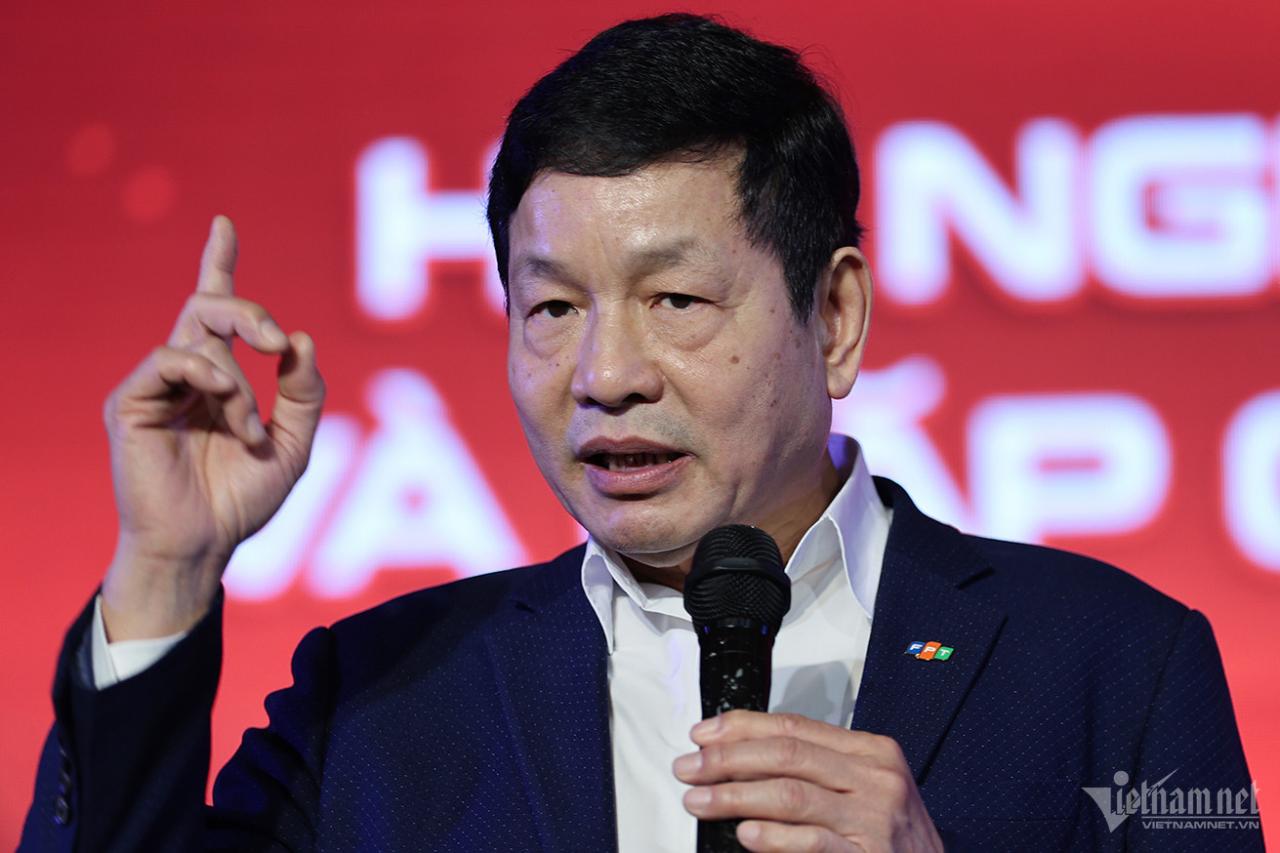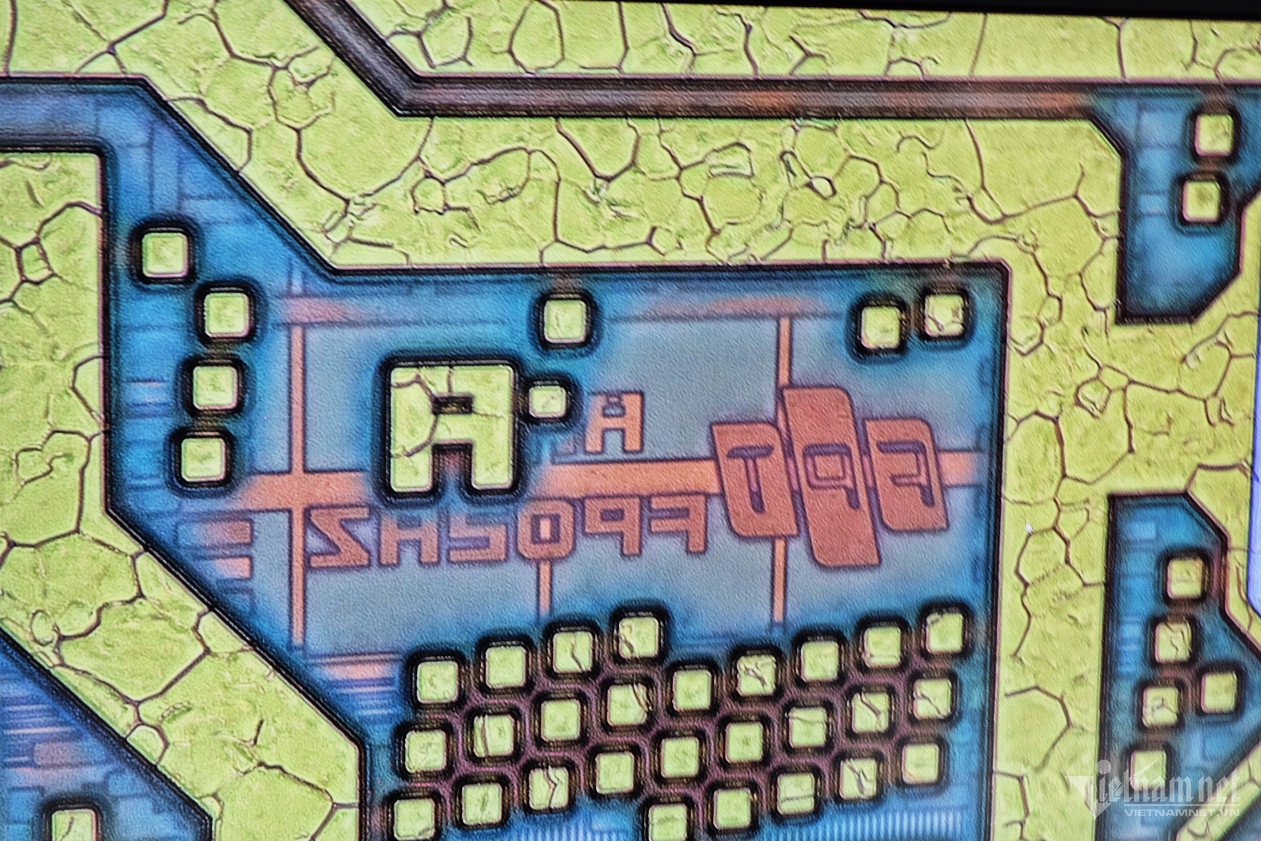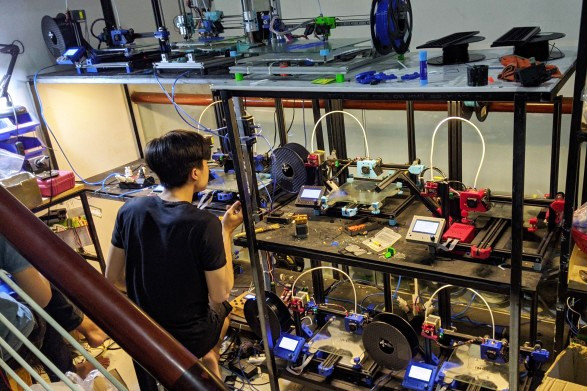This view was shared by Mr. Truong Gia Binh, Chairman ofFPT Group, at the New Year's meeting of the Vietnam Software and IT Services Association (VINASA). Mr. Binh also currently holds the position of Chairman of the Founding Council of this association.
According to the Chairman of the VINASA Founding Council, this is the time when the world is choosing Vietnam as a new link in the semiconductor supply chain. Therefore, Vietnam is at a crossroads.
" Either we continue on this path, with no guarantee that our children and grandchildren will escape the middle-income trap, or we make a decisive turn so that Vietnam can stand among the most advanced nations in the world ," Mr. Truong Gia Binh remarked.
Sharing more about this story, Mr. Truong Gia Binh said that semiconductors are a special industry because they have contributed to shaping the world order today.
In the 1960s, Japan was a world leader in chip manufacturing; however, under pressure from the United States, Japan had to cede this market share. Subsequently, the US chose to assist South Korea and Taiwan (China) in developing their chip industries, and today, these two countries produce most of the world's chips.
According to Mr. Truong Gia Binh, geopolitics is once again shifting. Due to over-concentration in a few regions, the global chip supply chain faces many risks. Therefore, Vietnam has the opportunity to become a new member in the supply chain.

However, Mr. Binh also stated that Taiwanese (China) semiconductor companies did not choose Vietnam as a base because they had surveyed and found that our country's semiconductor workforce is still modest.
There is a global shortage of semiconductor talent. This shortage is even more difficult to resolve as the US pressures chip outsourcing companies to leave China. Meanwhile, for many semiconductor companies, the majority of their workforce is located in that country.
According to the Chairman of the VINASA Founding Council, this is an opportunity for Vietnamese IT businesses. To convince the world to believe in them instead of looking at what they already have, domestic technology companies need to have ambition and be able to envision the future.
Typically, other countries take 18 months to transition a software engineer into a chip design engineer. However, if the detailed design is already segmented, Vietnamese software engineers can transition to chip design within 3 months, then break down the work into smaller tasks to learn on the job.
If approached in this way, Vietnamese software and IT service businesses can very quickly transition to chip design outsourcing. Through this process, Vietnamese technology companies will be able to accumulate resources and then move towards manufacturing entirely new chips themselves or producing older chips at a lower cost.

A survey by the Vietnam Software and IT Services Association shows that many Vietnamese people are currently working in the semiconductor industry in various countries around the world. This includes prestigious semiconductor companies such as Qualcomm, Amkor, and Texas Instruments. Their income ranges from approximately $100,000 to $300,000 USD.
According to Mr. Truong Gia Binh, through interactions, many Vietnamese people in the US are willing to leave large companies to return to Vietnam to work. This will be an important source of human resources for Vietnam's semiconductor industry in terms of research, development, and training.
Recognizing the opportunities the semiconductor industry offers for Vietnamese digital technology businesses, the Vietnam Software and IT Services Association has launched the Vietnam Semiconductor Industry Committee to promote the development of businesses in the industry.
One of the committee's key tasks is to bring together Vietnamese experts working in chip manufacturing globally to leverage this high-quality workforce and contribute to the development of the domestic semiconductor industry.

Source






![[Photo] Prime Minister Pham Minh Chinh presides over a meeting on private sector economic development.](/_next/image?url=https%3A%2F%2Fvphoto.vietnam.vn%2Fthumb%2F1200x675%2Fvietnam%2Fresource%2FIMAGE%2F2025%2F12%2F20%2F1766237501876_thiet-ke-chua-co-ten-40-png.webp&w=3840&q=75)




































































































Comment (0)